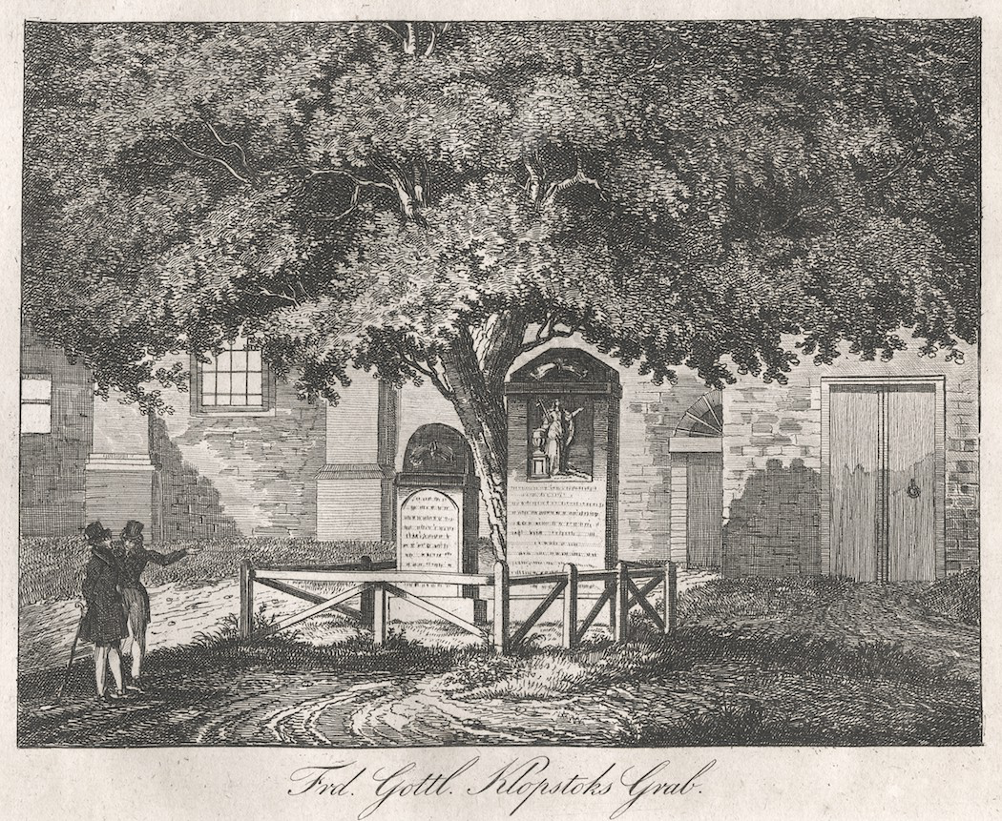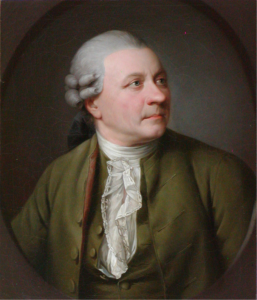The summer night
(Poet's title: Die Sommernacht)
Set by Schubert:
D 289
[September 14, 1815]
Wenn der Schimmer von dem Monde nun herab
In die Wälder sich ergießt, und Gerüche
Mit den Düften von der Linde
In den Kühlungen wehn,
So umschatten mich Gedanken an das Grab
Meiner Geliebten! Und ich seh im Walde
Nur es dämmern, und es weht mir
Von der Blüte nicht her.
Ich genoss einst, o ihr Toten, es mit euch!
Wie umwehten uns der Duft und die Kühlung,
Wie verschönt warst von dem Monde
Du, o schöne Natur!
When the gleam from the moon comes down now
As it is poured into the woods, and fragrances
With the smell of lime trees
Waft into the cool breezes:
Then it is that I am overshadowed by thoughts of the grave
Of my beloved, and in the forest I see
Only the arrival of twilight, and I cannot detect
The scent of the blossoms from where I am.
Oh you dead, I once enjoyed it with you!
How the scent and the cooling breeze wafted around us,
How you were made beautiful by the moon,
You, oh beautiful nature!
All translations into English that appear on this website, unless otherwise stated, are by Malcolm Wren. You are free to use them on condition that you acknowledge Malcolm Wren as the translator and schubertsong.uk as the source. Unless otherwise stated, the comments and essays that appear after the texts and translations are by Malcolm Wren and are © Copyright.
☙
Themes and images in this text:
Evening and the setting sun Flowers Graves and burials Lime trees (Lindenbaum) Night and the moon Pouring, scattering and strewing Shade and shadows Smells Summer Wind Woods – large woods and forests (Wald)
There can be no doubt that this is an example of the literature of ‘sensibility’ (Empfindsamkeit), but there is something very unusual about it. Rather than the poetry evoking a moment of heightened sensitivity, it is based on the writer’s failure to perceive the transforming scent of the lime trees or the transfiguring effect of the moonlight. It is his inability to respond to the poetic possibilities of this summer night that indicates the true depth of his feeling.
More noticeable than the moonlight pouring into the woods are the shadows that surround him and the approach of night, which are associated with thoughts of the grave and the ever-present awareness of loss and grief. The acute memory of heightened sensations brought on by moonlight and the scent of lime blossom on previous occasions in the presence of someone who is now dead makes the current lack of sensitivity all the more painful (and therefore, ironically, the numb, grieving soul is even more sensitive).
Although this is all too universal an experience, it might also be relevant to remember that Klopstock might have been drawing on autobiographical details in this Ode. His wife Meta Müller had died in childbirth in November 1758 (eight years before he wrote this poem). Although he married again much later in life he was eventually buried next to Meta and their child, under a lime tree.

https://www.antikvariatbretschneider.cz/shop/nemecko/6897-hamburg-klopstock-grab-mediryt-1829.html
☙
Original Spelling and note on the text Die Sommernacht Wenn der Schimmer von dem Monde nun herab In die Wälder sich ergießt, und Gerüche Mit den Düften von der Linde In den Kühlungen wehn: So umschatten mich Gedanken an das Grab Meiner Geliebten! Und ich seh' im Walde Nur es dämmern, und es weht mir Von der Blüthe nicht her. Ich genoß einst, o ihr Todten, es mit euch! Wie umwehten uns der Duft und die Kühlung, Wie verschönt warst von dem Monde, Du, o schöne Natur! 1 Schubert changed 'Der' (the) to 'Meiner' (my)
Confirmed by Peter Rastl with Klopstocks Oden. Erster Band. Leipzig bey Georg Joachim Göschen. 1798, page 234; and with Oden von Klopstock. WIEN, gedruckt bey Joh. Thomas Edlen von Trattnern, k.k. Hofdruckern und Buchhändlern. 1784, pages 218-219.
To see an early edition of the text, go to page 234 [252 von 356] here: http://digital.onb.ac.at/OnbViewer/viewer.faces?doc=ABO_%2BZ223304809


